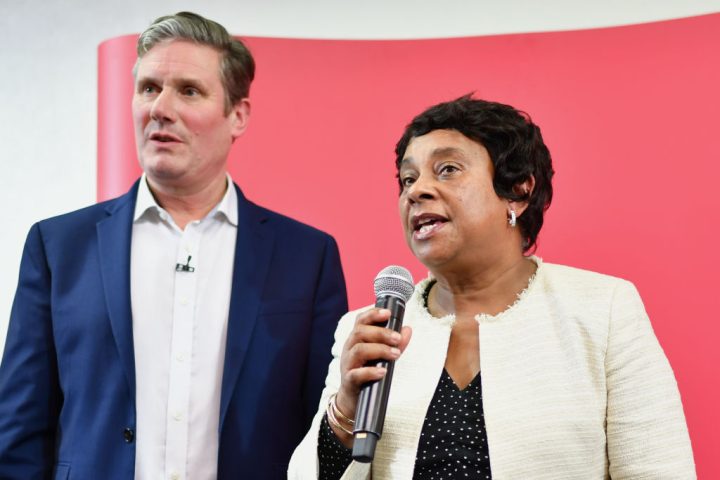Is Labour leader Sir Keir Starmer right to have limited the access to and sway held over him by Baroness Lawrence, the mother of murdered black teenager Stephen Lawrence?
Lady Lawrence, a Labour peer who was made the party’s race relations adviser by Starmer after he became leader early in 2020, is in no doubt that this is what has happened in recent weeks. According to the Times, she told a meeting with shadow ministers and senior party officials, ‘I wish Keir listened to me’ and blamed ‘gatekeepers’ around the Labour leader for obstructing her work.
Baroness Lawrence seems only to have one approach when it comes to race relations
She had given Starmer an endorsement in his successful party leadership campaign that was an important factor in him securing the votes of many black party members. As such, it is understandable that Lady Lawrence should react to such developments with dismay.
By now, nobody should be surprised by instances of Starmer displaying ruthlessness towards erstwhile allies as he prioritises winning power above anything else. That is just what he does. It brings to mind Henry IV’s brutal response to Falstaff, his friend from princely carousing days: ‘I know thee not old man.’
But does Doreen Lawrence merit such treatment after her three decades of tireless campaigning again racism which got underway shortly after her son was stabbed to death in 1993 by a racially-motivated gang of white thugs? Well, as Alan Watkins, a pundit from a previous era, used to put it: politics is a rough old trade. And the answer is yes.
This is because Baroness Lawrence, quite understandably given her own tragic experiences, seems only to have one approach when it comes to race relations. This is to conclude that suspicions or allegations of anti-black racism are well founded and that ever more radical policy responses should always be supported.
The first task given to her by Starmer in her work as the party’s race relations adviser was to investigate claims of BAME groups suffering high Covid death rates. Naturally she concluded that the impact of Covid was ‘not random, but foreseeable and inevitable, the consequence of decades of structural injustice, inequality and discrimination that blights our society’. That contrasted with other studies which emphasised the high prevalence of conditions such as type 2 diabetes in some ethnic minority communities, as well as a tradition of multi-generational households.
Shortly before she endorsed Starmer for the leadership and gained her official party role, Baroness Lawrence had been forced to apologise to London firefighters after alleging, without any supporting evidence, that racism had played a role in the high death toll at the Grenfell Tower fire. ‘Had that been a block full of white people, they’d have done everything to get them out as fast as possible and make sure that they did what they needed to do,’ she told Channel 4 News in October 2019. She reacted to the ensuing anger from firefighters by initially standing by her outrageous comments, before retracting them a few days later.
Giving someone who had exhibited such polarised thinking a powerful advisory role over his party’s race relations policies was unwise of Starmer to do in the first place. Seeking to marginalise her now is the correct course, indicating that he has decided to free himself from a future of making auto-concessions to unreasonable and electorally unpopular demands – a decolonising of the curriculum here, a public procurement programme aimed at black-owned businesses there. As the Baroness herself told the Times: ‘I’m always going to push the party to do more.’
This is the guise of a campaigner, not an advisor. In government sometimes the right response is to do less.







Comments